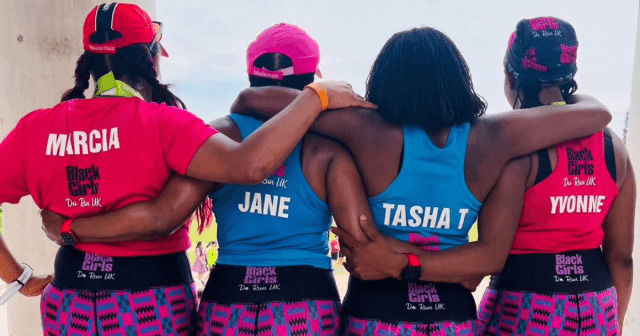In theory, running is as simple as putting one foot in front of the other at a pace that’s slightly faster than walking and that will get your heart rate up a little – or a lot.
But in reality, becoming a runner feels a lot more complicated, and a lot sweatier. So if you’re a beginner runner, how can you get started, what do you need to know, and what mistakes do you absolutely need to avoid? Try these running tips for beginners from coach John Honerkamp.
What’s the most important piece of advice to new runners?
Don’t do too much too soon. If your New Year’s Resolution is to train for a 5K, that’s great! But don’t feel like you have to go out and start running every single day now. You don’t have to, nor should you.
What’s the number one running gear beginner runners need on Day 1?
Good running shoes. And you might need to try a bunch of different ones before you find your perfect fit.
How often should you run if you’re new to running?
No more than three times a week. I recommend starting out running every other day or every third day. And make sure you cross train and do other things you love doing. Don’t let everything you’ve been enjoying fall by the wayside just because you want to start running. You can do both! It’s good to be well balanced.
And how long should these runs be?
I typically measure those runs in minutes, not miles. So go out and see if you can run for 20 minutes, and work your way up to 30 minutes over the first few weeks. You can use a walk-run method, like running for 90 seconds and walking for 90 seconds, or just go out at an easy, conversational pace and see how it feels.
But don’t worry about how many miles you’re doing right away. Increasing by minutes is easier and safer than increasing by miles at a time.
How can beginner runners learn to pace themselves?
This is a great question because it’s something that’s so common. People run a block and say running is too hard, or they’re totally gassed, but that’s because they’re usually sprinting!
People love to work out really hard and will say things like “no pain, no gain,” but most running should be easy running. Eventually, you can structure your runs, so maybe one run is your longer run, one is a short, easy run, and a third run is a workout, like hills or intervals.
But if you’re a new runner, at first, nothing should be fast. You should be able to hold a conversation with someone the entire time. If you can’t, slow down. There’s nothing wrong with slowing down.
Any running form tips for beginners?
Don’t overthink it. There are ways you can tweak your form to be a more efficient runner, but ultimately you just want to keep your elbows back and your posture tall. You should feel relaxed. And the thinking that heel striking is bad is outdated. New runners should try to run carefree and relaxed and not worry too much about their form as long as they feel comfortable.
Should running always feel comfortable?
No! You’ll have good days and bad days. At first, there might be many more bad days. Running doesn’t always feel good but it can. Be patient and enjoy!
If you liked this post, don’t forget to share so that others can find it, too.
Or give it a thumbs up!
I like this article
Please note that the information provided in the Polar Blog articles cannot replace individual advice from health professionals. Please consult your physician before starting a new fitness program.






